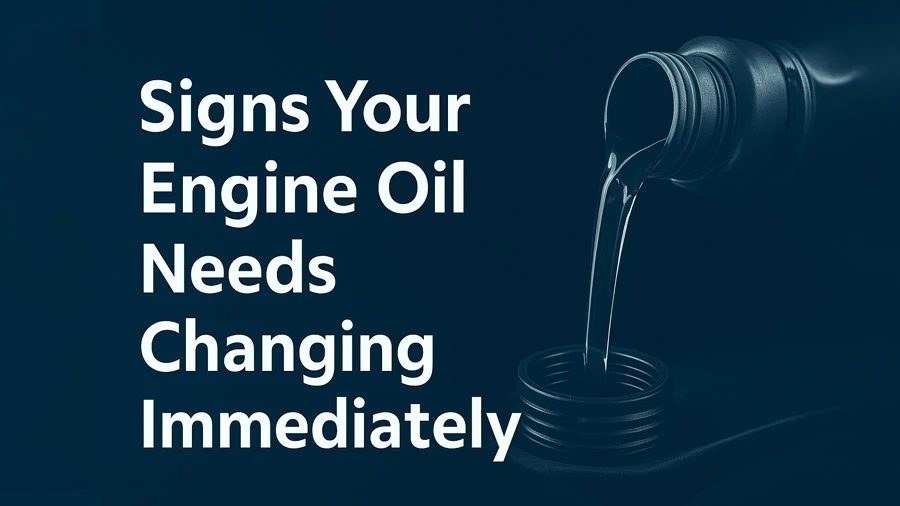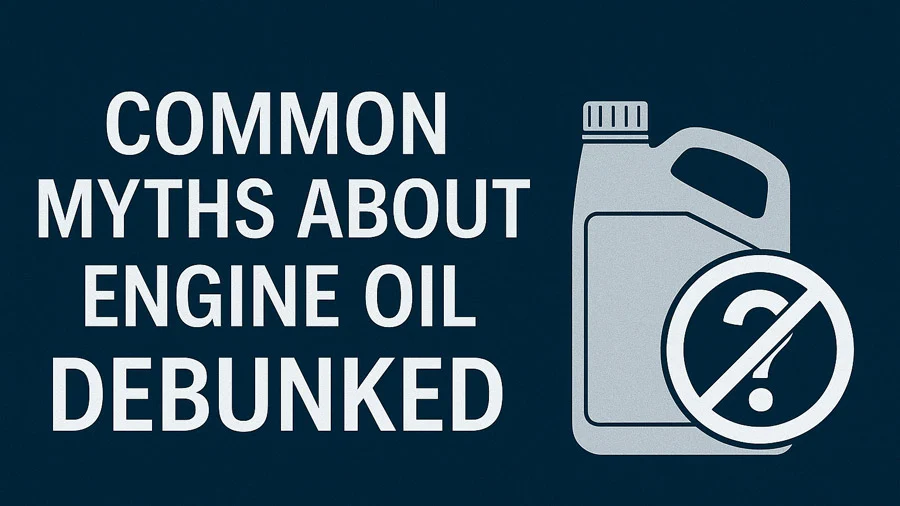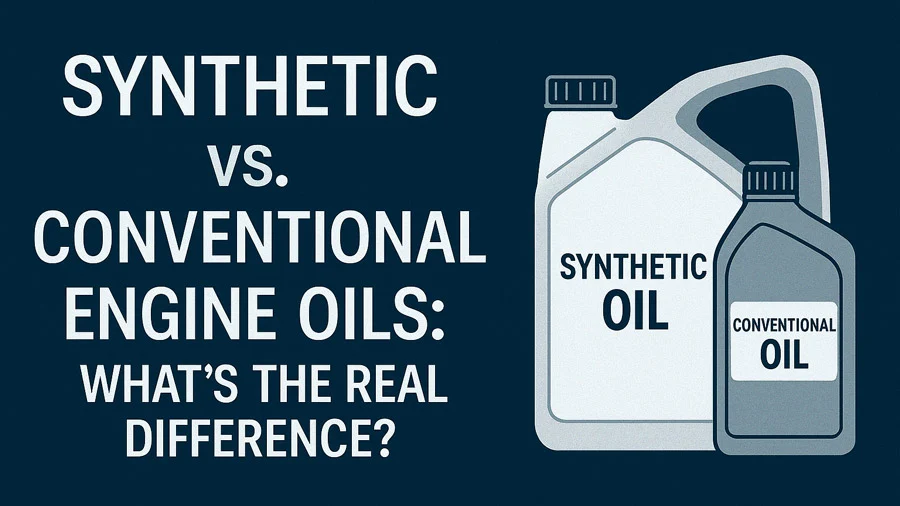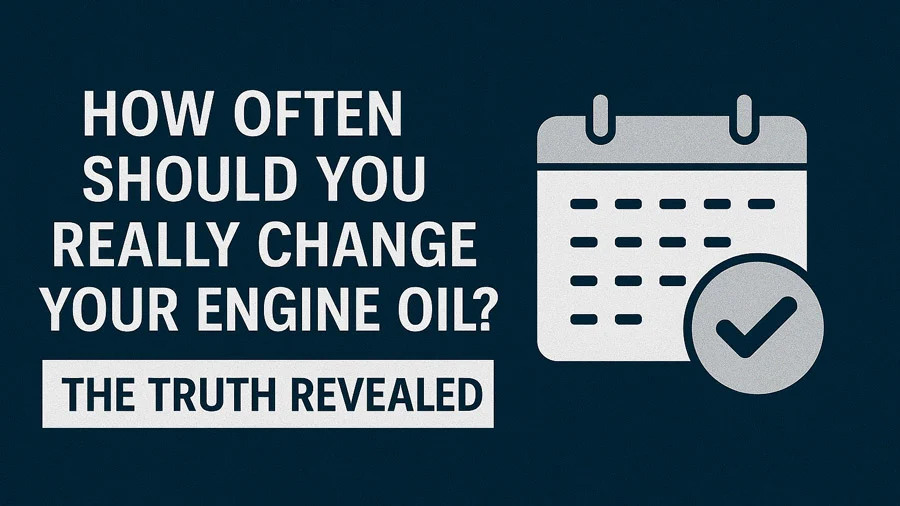If your car’s engine were a heart, engine oil would be the blood keeping it alive. It might seem like just another fluid, but it’s literally what prevents your engine from tearing itself apart. Choosing the right engine oil is not about fancy branding—it’s about extending your car’s life, improving fuel efficiency, and saving you thousands in repairs.
Table of Contents:
What Does Engine Oil Actually Do?
Let’s keep it simple: engine oil does four major things for your car’s engine:
- Lubricates moving parts so they don’t grind against each other.
- Cools the engine by reducing heat from friction.
- Cleans internal components by suspending dirt and sludge.
- Protects against corrosion and wear.
Without it? Think sandpaper inside your engine. Not pretty.
Why the “Right” Oil Makes All the Difference
Not all oils are created equal. Using the wrong type or viscosity can lead to:
- Reduced performance
- Sludge build-up
- Excessive engine wear
- Even voiding your warranty
Choosing the correct oil is like feeding your car the right diet—it needs the right ingredients to run at its best.
Types of Engine Oil
Let’s break them down:
Conventional Oil
- Derived directly from crude oil.
- Cheapest option.
- Best for older engines or light use.
- Shorter lifespan.
Synthetic Oil
- Lab-engineered for high performance.
- More stable at extreme temperatures.
- Longer life and better protection.
- Pricier, but worth it for modern engines.
Semi-Synthetic (Blend) Oil
- A mix of conventional and synthetic.
- Balanced performance and price.
- Great for drivers who want “better than basic” but not the premium tag.
High-Mileage Oil
- Formulated with additives for cars over 75,000 miles.
- Reduces oil burn-off and helps recondition seals.
- Helps older engines stay healthy longer.
How to Read Engine Oil Labels
Ever stared at a bottle of oil and thought, “What the heck does 5W-30 even mean?”
Here’s how to decode it:
- “W” stands for Winter.
- The number before the “W” is how the oil performs in cold temperatures.
- The number after the “W” reflects high-temp performance.
Example:
5W-30 flows better in cold than 10W-30. Both behave similarly at high temps.
What Is Viscosity and Why Does It Matter?
Viscosity = oil thickness.
- Lower viscosity (e.g., 0W-20): Flows faster, better in cold climates.
- Higher viscosity (e.g., 10W-40): Thicker, better for high-temp protection.
It’s like choosing between syrup and High-Mileage Oil
has a time and place.
Decoding SAE Ratings (e.g., 5W-30 vs. 10W-40)
- SAE = Society of Automotive Engineers.
- These ratings standardize how oil behaves under different temperatures.
- Use what your manufacturer recommends. Always.
Choosing Based on Climate and Driving Conditions
City Driving vs. Highway Driving
- City = stop/start traffic, needs oils that handle heat well.
- Highway = steady RPMs, oil with long life and stability.
Hot vs. Cold Climate
- Cold weather? Go with lower “W” ratings like 0W-20.
- Hot weather? You’ll want something thicker like 10W-40.
How Car Age and Mileage Affects Oil Choice
- New cars: Stick to manufacturer’s spec.
- Older cars: Consider high-mileage oils.
- Leaky engines: Thicker oils may reduce leaks (temporarily).
Age matters. Like skincare, older engines need more TLC.
The Role of Manufacturer Recommendations
Always check the owner’s manual. Car makers know best:
- Oil grade
- API rating
- Change intervals
Following these specs ensures peak performance and keeps warranties valid.
Common Myths About Engine Oil
Should You Always Go with the Most Expensive Oil?
Nope. Expensive doesn’t always mean better—only use what your engine needs. Overkill can be just that—overkill.
Is Frequent Oil Changing Always Good?
Not necessarily. Too frequent = wasted money and resources. Go by mileage or engine oil life monitors.
Key Tips for Making the Right Engine Oil Decision
- Read your car’s manual.
- Match oil type to your driving style and climate.
- Don’t mix oil types unless it’s an emergency.
- Use reputable brands.
- Change your oil filter with every oil change.
- Watch for warning signs: strange noises, smoke, or low performance.
Conclusion: Keep Your Engine Happy with the Right Oil
Your engine is your car’s MVP—don’t let it down with the wrong oil. Whether you’re a weekend warrior or daily commuter, making smart oil choices means fewer repairs, better mileage, and a smoother ride. Like a good pair of shoes, the right oil helps everything run better—and longer.
FAQs
Yes, just make sure your engine can handle it and consult your mechanic if unsure.
For most modern engines, yes. It lasts longer and protects better.
Use mileage, time intervals, or your car’s oil life monitor.
In emergencies, yes. But it’s best to stick with one type and brand for consistency.
Your engine may run less efficiently, wear out faster, or even suffer damage long term.



